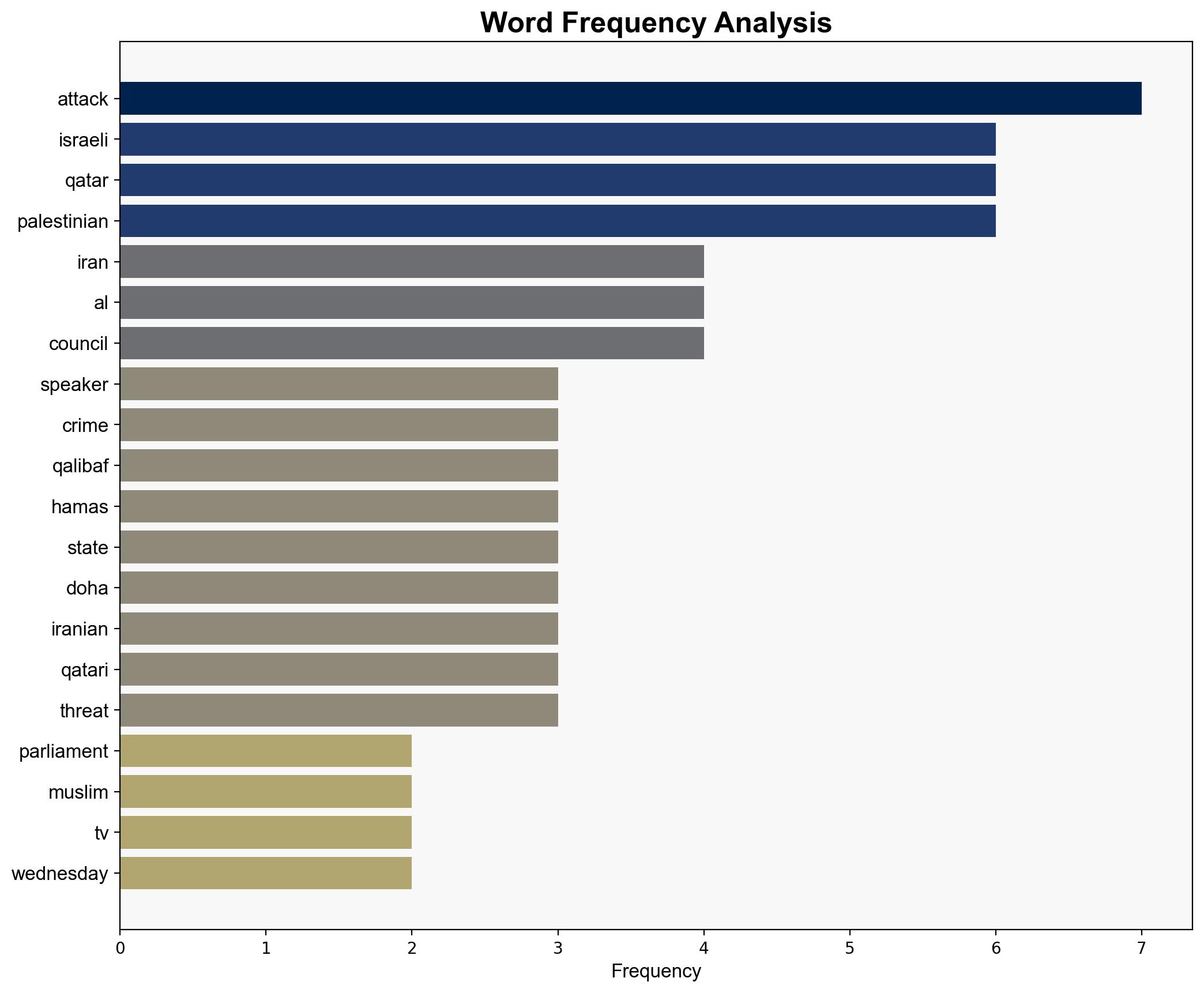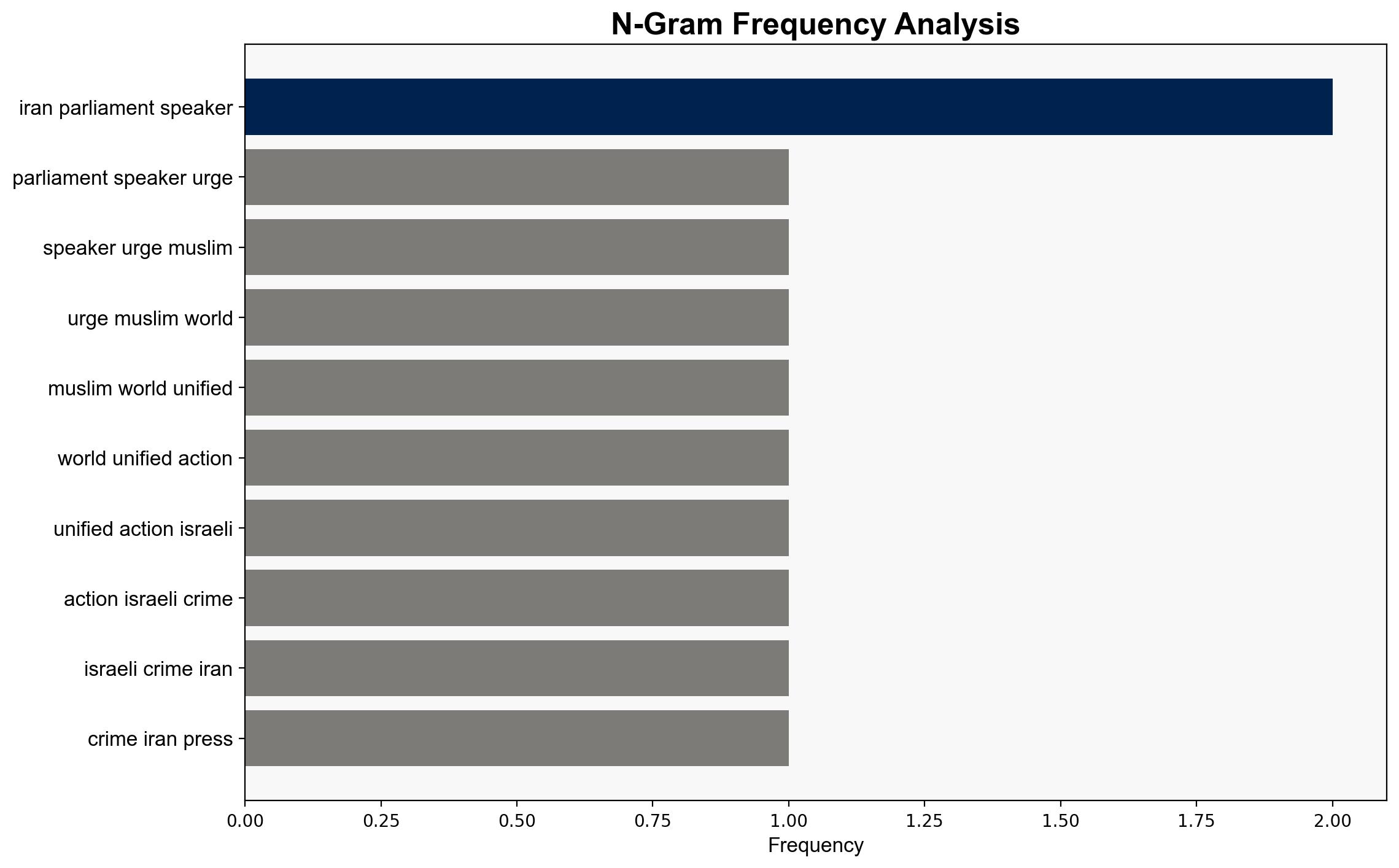Iran’s Parliament speaker urges Muslim world’s unified action against Israeli crimes – Globalsecurity.org
Published on: 2025-09-11
Intelligence Report: Iran’s Parliament Speaker Urges Muslim World’s Unified Action Against Israeli Crimes – Globalsecurity.org
1. BLUF (Bottom Line Up Front)
The most supported hypothesis is that Iran is leveraging regional tensions to consolidate influence among Muslim nations by positioning itself as a leader against Israeli actions. Confidence level: Moderate. Recommended action: Monitor Iran’s diplomatic engagements and military movements in the region to assess potential shifts in alliances or escalations.
2. Competing Hypotheses
1. **Iran is seeking to unify Muslim nations against Israel to increase its geopolitical influence in the Middle East.** This hypothesis suggests that Iran’s call for unified action is a strategic move to position itself as a leader among Muslim nations, thereby increasing its regional influence and countering Israeli and Western alliances.
2. **Iran’s statements are primarily aimed at domestic audiences to bolster internal support by emphasizing its role in defending Palestinian rights.** This hypothesis posits that the rhetoric is largely for domestic consumption, aiming to strengthen national unity and distract from internal issues by focusing on a common external adversary.
3. Key Assumptions and Red Flags
– **Assumptions**: It is assumed that Iran’s statements reflect genuine intentions to lead a unified Muslim response. Another assumption is that other Muslim nations are receptive to Iran’s leadership.
– **Red Flags**: The lack of specific commitments from other Muslim nations to support Iran’s call could indicate limited regional backing. Additionally, the timing of the statement following an Israeli strike suggests a reactionary rather than proactive stance.
– **Blind Spots**: The potential for internal dissent within Iran or among other Muslim nations regarding this unified stance is not addressed.
4. Implications and Strategic Risks
– **Geopolitical Risks**: Increased tensions between Iran and Israel could lead to broader regional instability. If Iran successfully unites Muslim nations, it could shift the balance of power in the Middle East.
– **Economic Risks**: Escalation could disrupt oil markets, affecting global economies.
– **Cyber and Psychological Risks**: Potential for cyber-attacks or propaganda campaigns targeting Israeli and Western interests.
5. Recommendations and Outlook
- Monitor diplomatic communications and military activities in the region to detect shifts in alliances or preparations for conflict.
- Engage in diplomatic efforts to de-escalate tensions and promote dialogue between conflicting parties.
- Scenario Projections:
- Best Case: Diplomatic resolution leads to decreased tensions and increased regional cooperation.
- Worst Case: Escalation results in military conflict, destabilizing the region and impacting global markets.
- Most Likely: Continued rhetoric without significant change in regional dynamics, maintaining a status quo of tension.
6. Key Individuals and Entities
– Mohammad Baqer Qalibaf
– Hassan bin Abdulla Al Ghanim
– Khalil al-Hayya
– Suhail al-Hindi
7. Thematic Tags
national security threats, regional focus, geopolitical strategy, Middle East tensions




